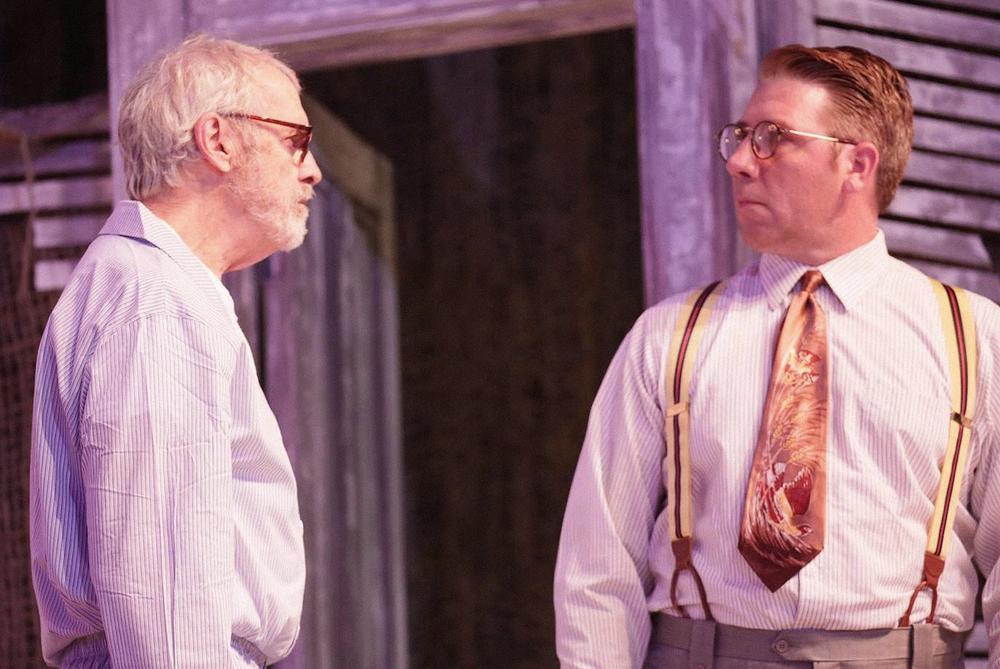Section Branding
Header Content
Questions Still Linger For Georgia Theaters: 'We Don't Know What Comes Next'
Primary Content
When GPB talked to Marietta theater owner Carolyn Choe at the onset of the pandemic, she spoke of the uncertainties ahead. Now months later, there are still far more questions than answers.
Choe's company, Out of Box Theatre, has remained closed since late March.
"Here we are in this intermission and we don't know what comes next," she said. "And to say so or to try to figure it out, there's no point."
While other theater companies and production houses have tried with varying degrees of success to move their work online, Out of Box sent out a letter to their patrons this week explaining that they will continue to wait things out. For Choe, the options available just didn't seem right for her company, which is known for intimate, smaller productions.
"Part of what makes who we are is the intimacy, the personal relationships, the shared experiences in person," she said. "To try to recreate that in some way digitally doesn't work for our theater company."
Choe was able to secure a small business loan from the Small Business Association, which has managed to keep her operating costs afloat for now. Choe is quick to acknowledge, however, that many others in her space aren't as lucky.
"Some landlords aren't as amiable to others with no income. It's the expense of running a theater," she said. "That's one thing I did. I talked to a couple companies. And they're concerned."
Many theaters are in a similar situation that the state's music venues are currently in. While the previous stimulus plan was able to help some theaters meet their current expenditures, many face a long-term uncertainty about how to continue business reliant on large audiences in the age of social distancing.
Actor, director and playwright Topher Payne was preparing for the debut of his play, Morningside, at the Springer Opera House in Columbus before production shut down in March.
He did not qualify for a stimulus check under the CARES Act.
"I think there was a dearth of consideration," he said. "Whether you're an actor moving from show to show or even an Uber driver, the lack of a safety net has left a lot of us wondering what happens next."
Payne works in the state's television industry when they're not doing work in live theater. While a recent gig in that field has helped keep their finances afloat, he notes that the film industry also relies on "gig economy" workers.
PREVIOUS COVERAGE: Theater Owner Says 'Breaks Whole Heart' To Cancel Production
"The overwhelming majority of us have a day in our future where the money going in won't match the money that we have to put out," he said. "The entire business model of the arts is based around short term business contractors."
Prior to the worldwide COVID-19 response, which brought film and television production activity to a virtual standstill worldwide, Georgia set a new record for film during fiscal year 2019, according to the governor's office. The 391 film and television productions that filmed in Georgia spent $2.9 billion in the state, supported 3,040 motion picture and television industry businesses and delivered $9.2 billion in total wages.
Atlanta actor and stagehand Paul Glaze, who told GPB in March that he worried about the possibility of all theaters across the state closing, said the outlook is still dire.
"There will be an ensuing goodwill promotional narrative that all the theaters are going to have to engage in to give people the confidence to come back," he said. "That has the potential to completely obfuscate how desperate the situation is."
But Glaze thinks there could be a silver lining from desperate times. Theater companies looking to cut costs could start looking towards using more original material.
"People are going to try to do things that don't require a huge licensing cost," he said. "I mean, it's kind of a brave new world now."
Glaze echoed sentiments that there should be an economic stimulus specifically geared toward the arts community, making the case that theaters across the state stimulate local economies and provide communities with valuable culture.
"We do this because we want to change lives," he said. "But we want you to support us because it keeps people off unemployment and it keeps people producing and contributing to their communities."


